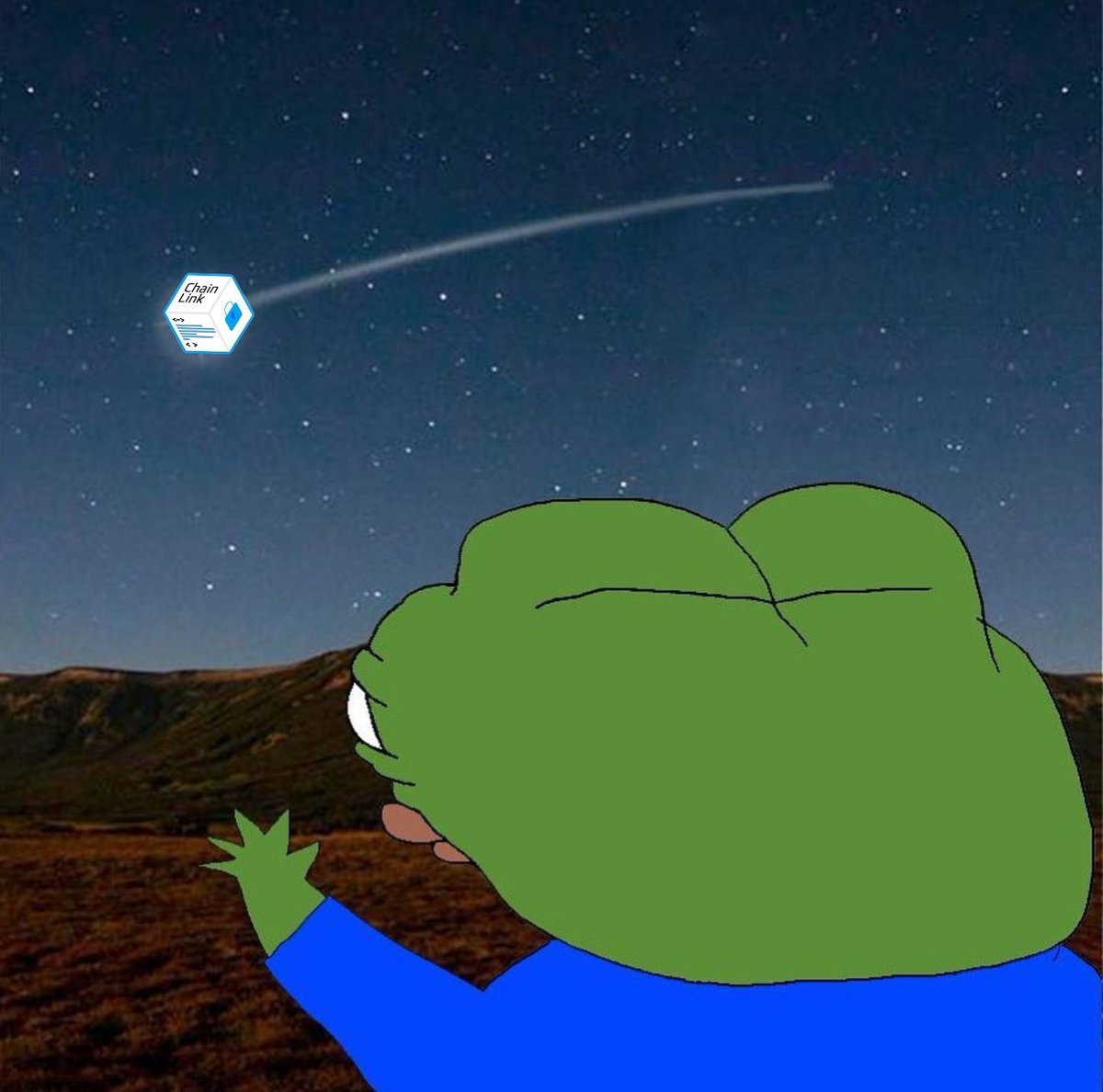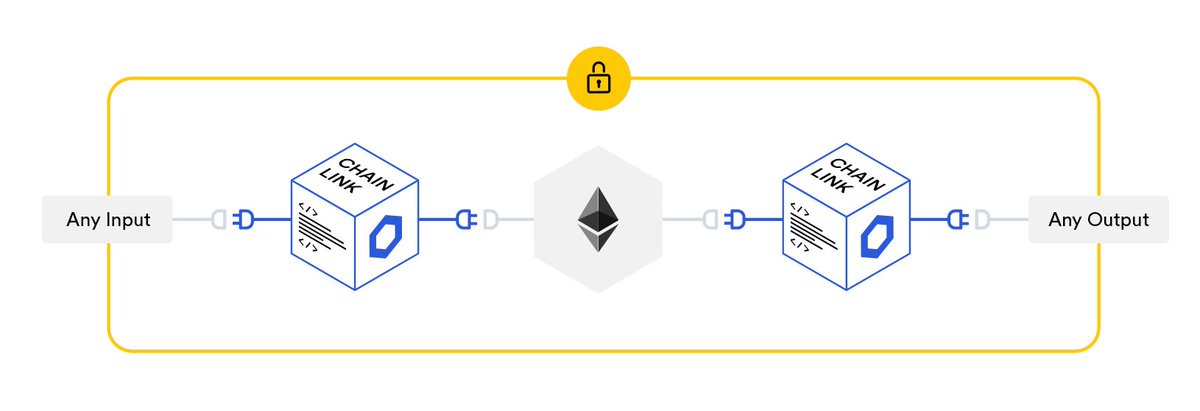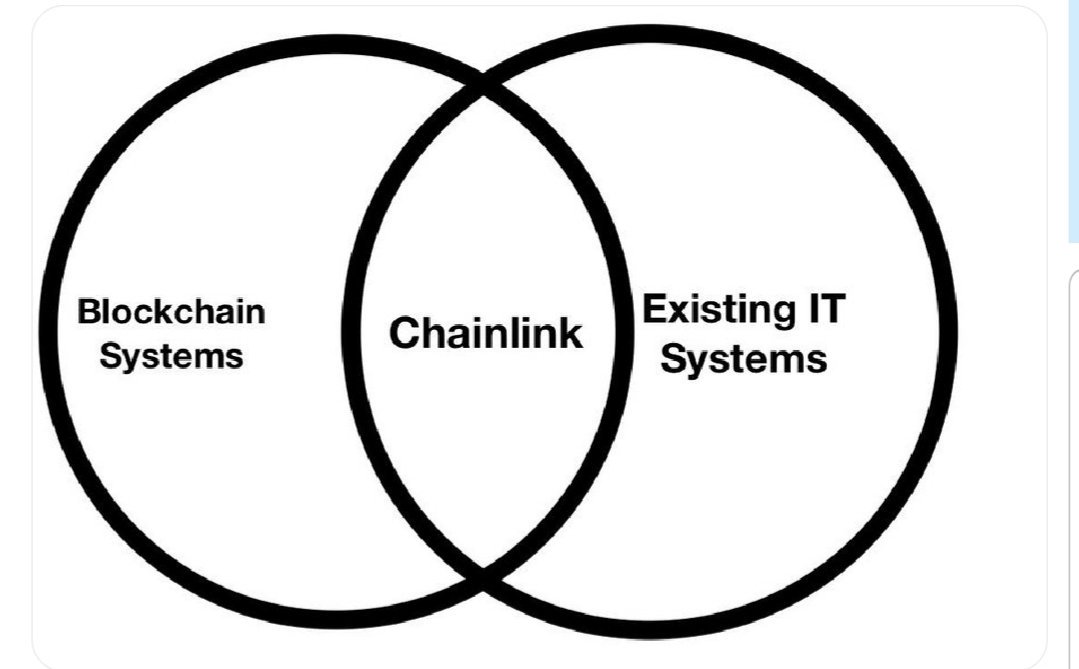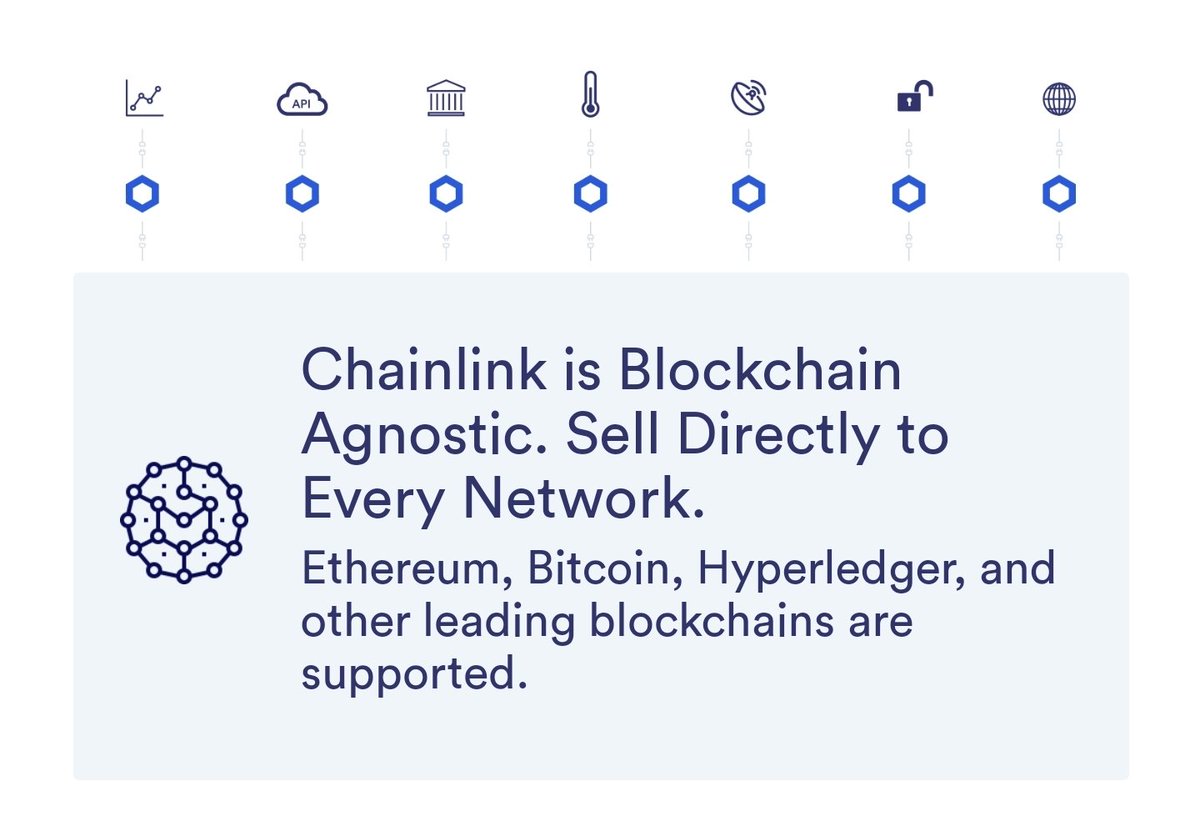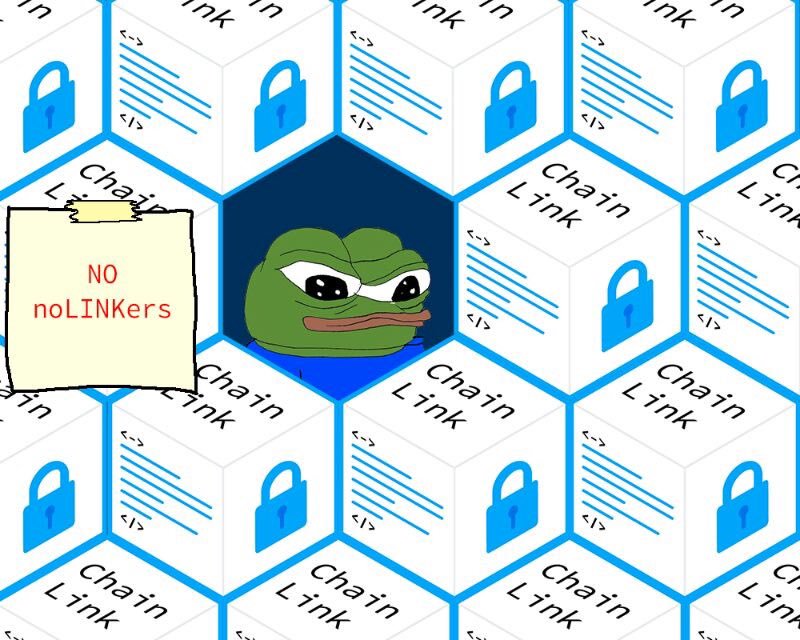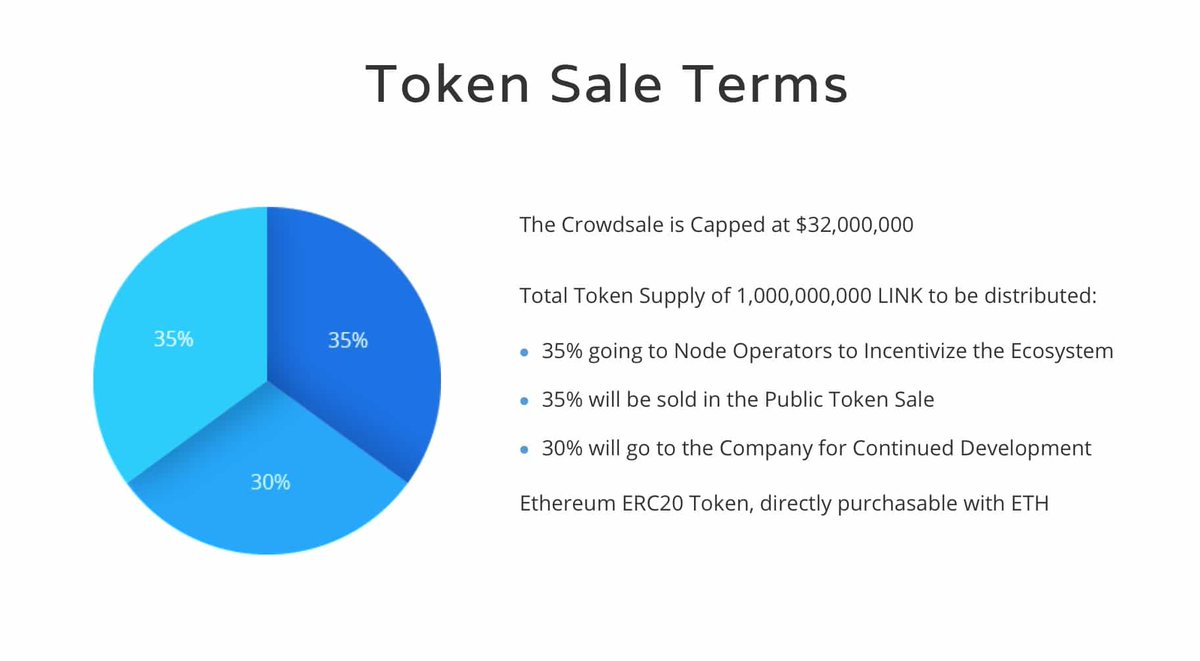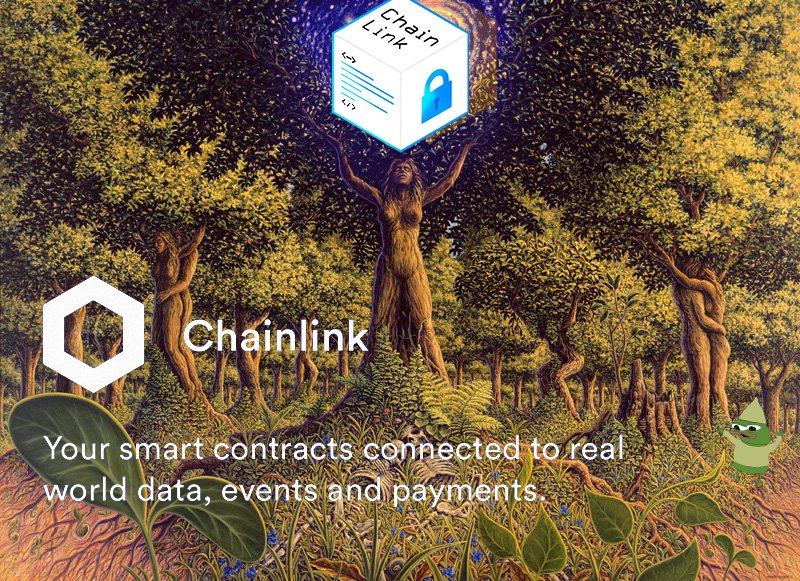Unfortunately state changes are limited to direct user inputs, which isn't ideal for contracts that affect multiple parties
This space is still missing the other half of the equation
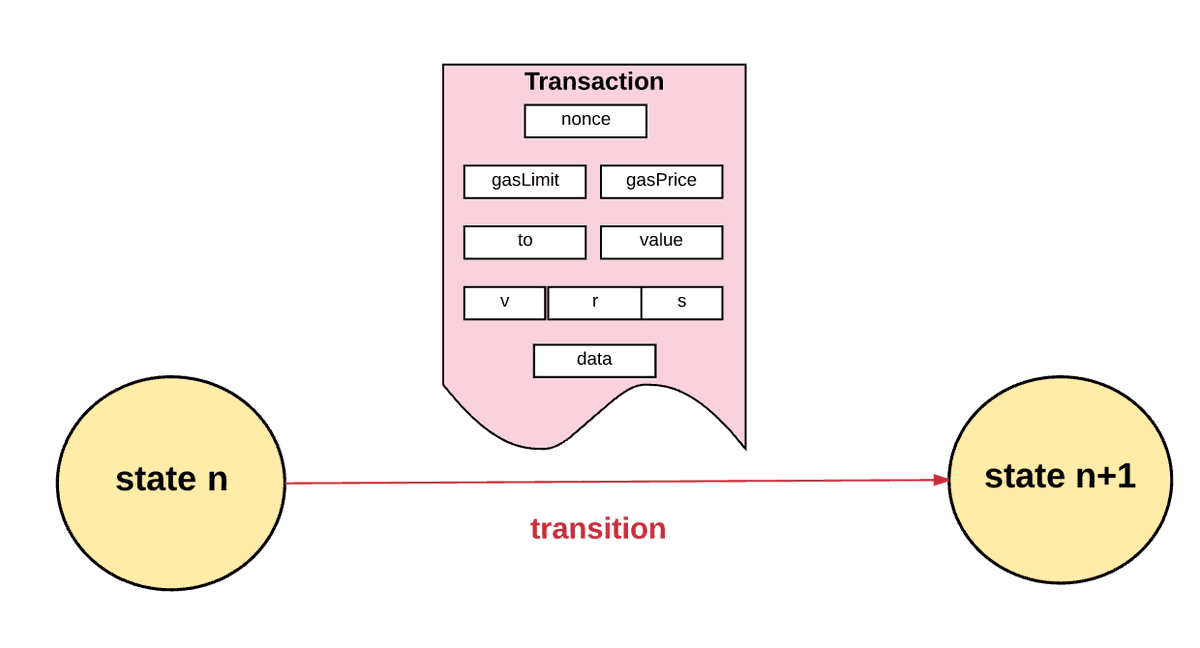
>>> Oracles <<<
The vast majority of useful #SmartContracts will need secure oracles as the data they require to execute is off-chain
#Oracles are the bridge between the on-chain world and the off-chain world
The gatekeeper so to speak
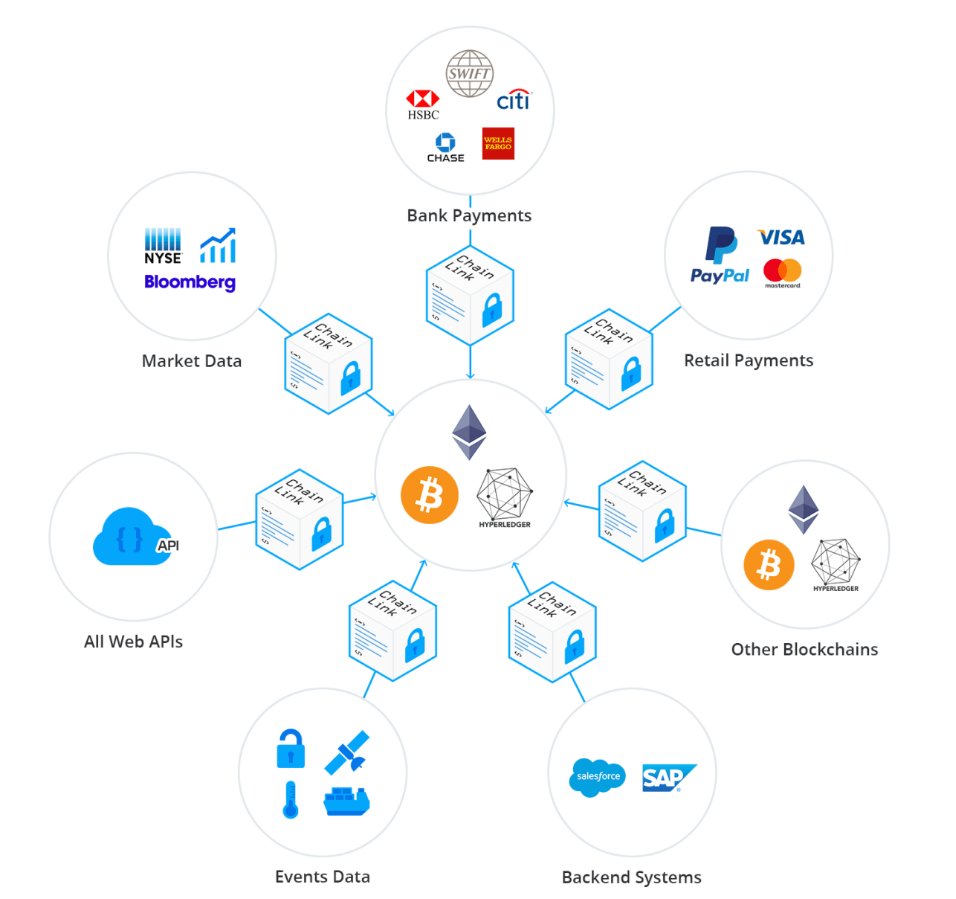
They didn't just ponder on it, they worked directly with the entities that want to leverage this technology, aka some of the largest institutions in the world
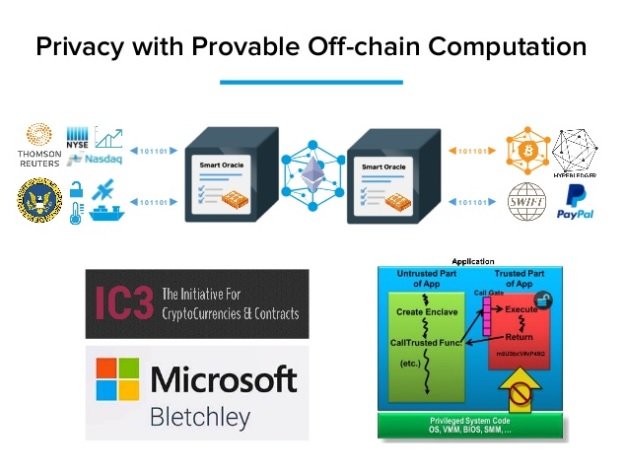
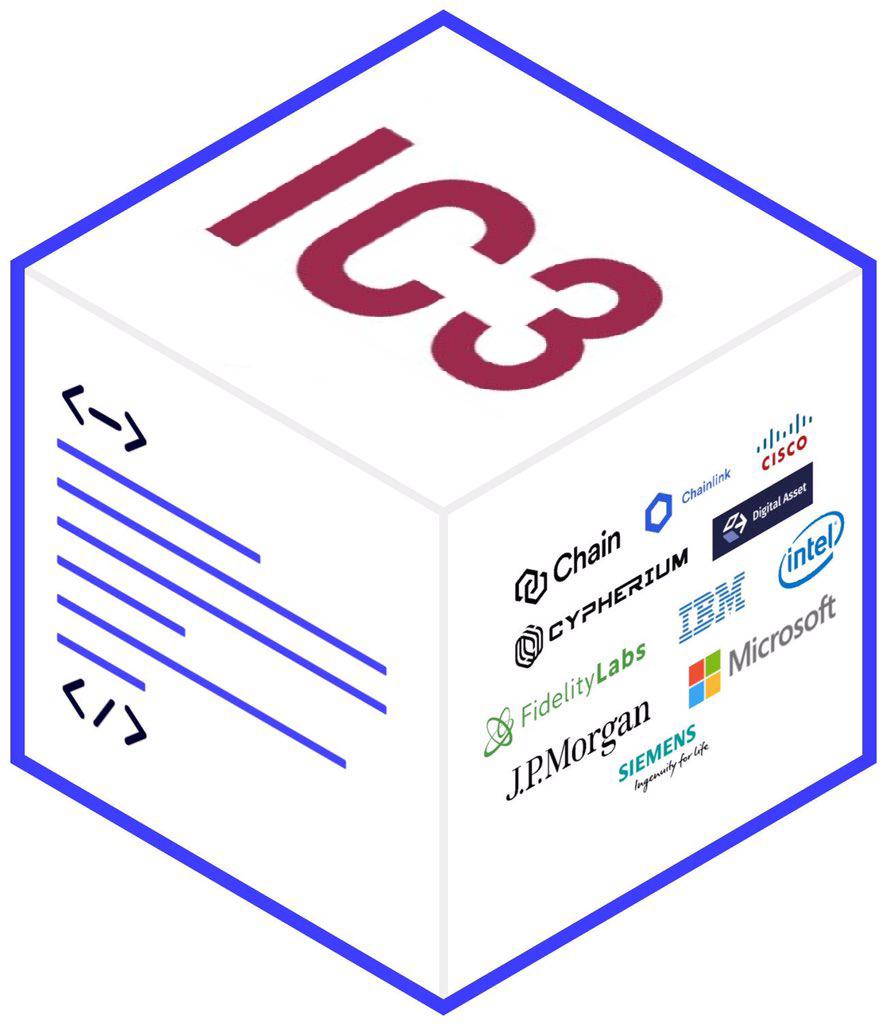
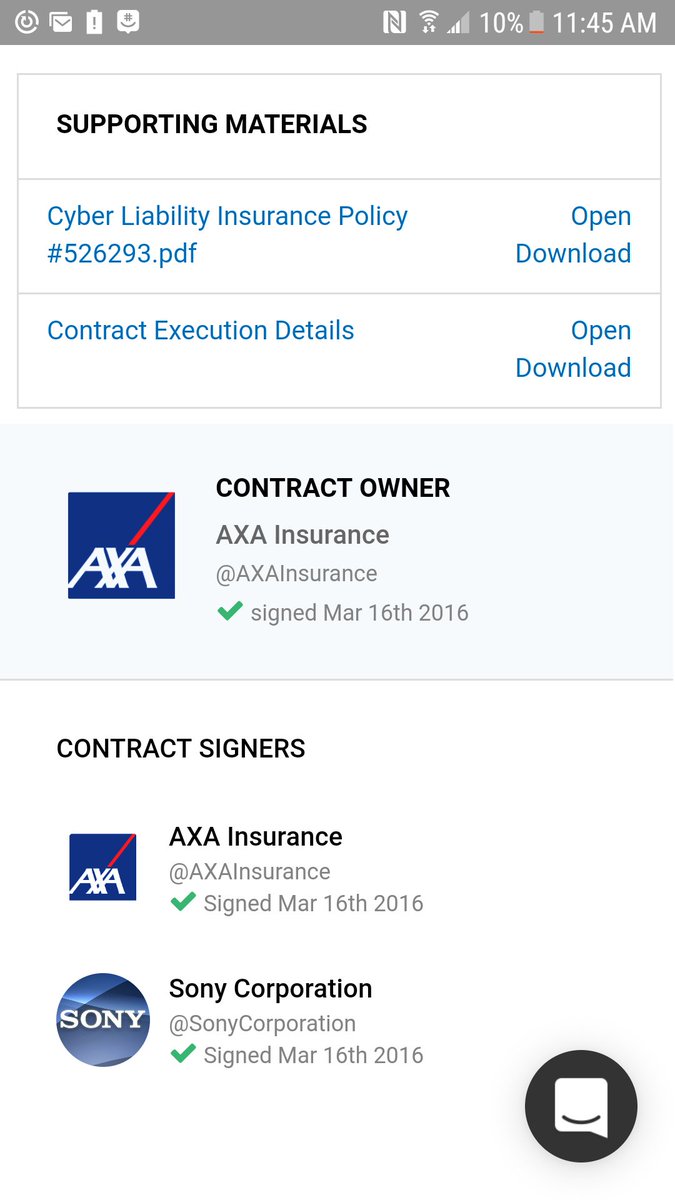
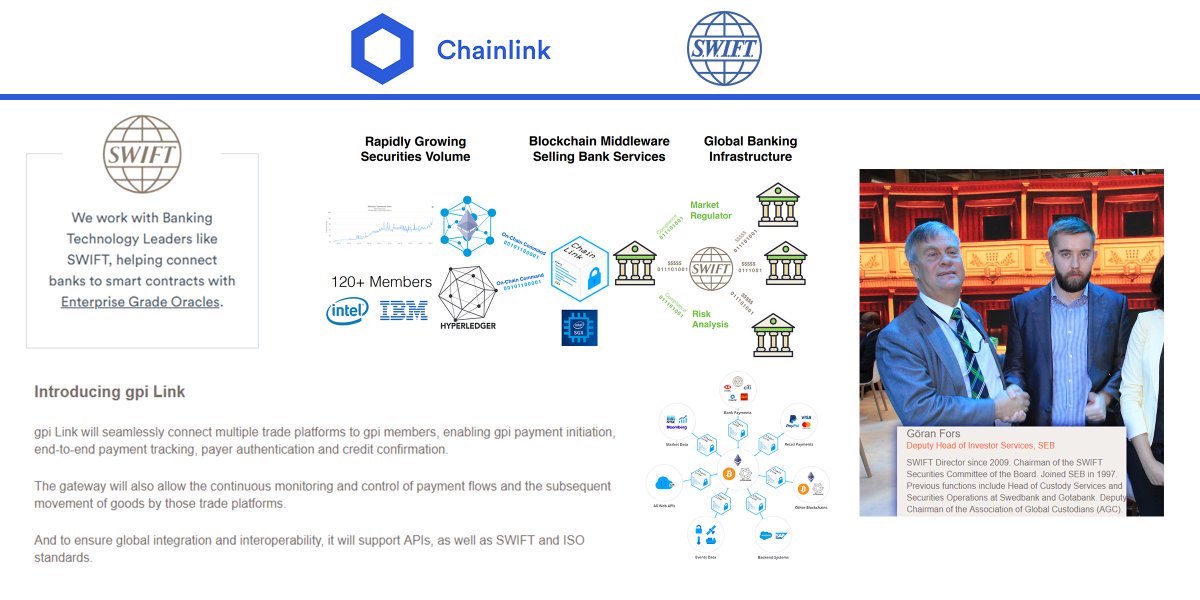
Well quite a lot
Including the info in the tweet below, you can connect Smart Contracts on any DLT to any external system that exists off-chain
Market prices, IoT, GPS, SMS, retail/bank payments...
Your imagination is the limit
Let me know if I should continue my ramblings or not, for now I hope you have a better overview of the value #Chainlink $LINK generates
This is just the beginning
